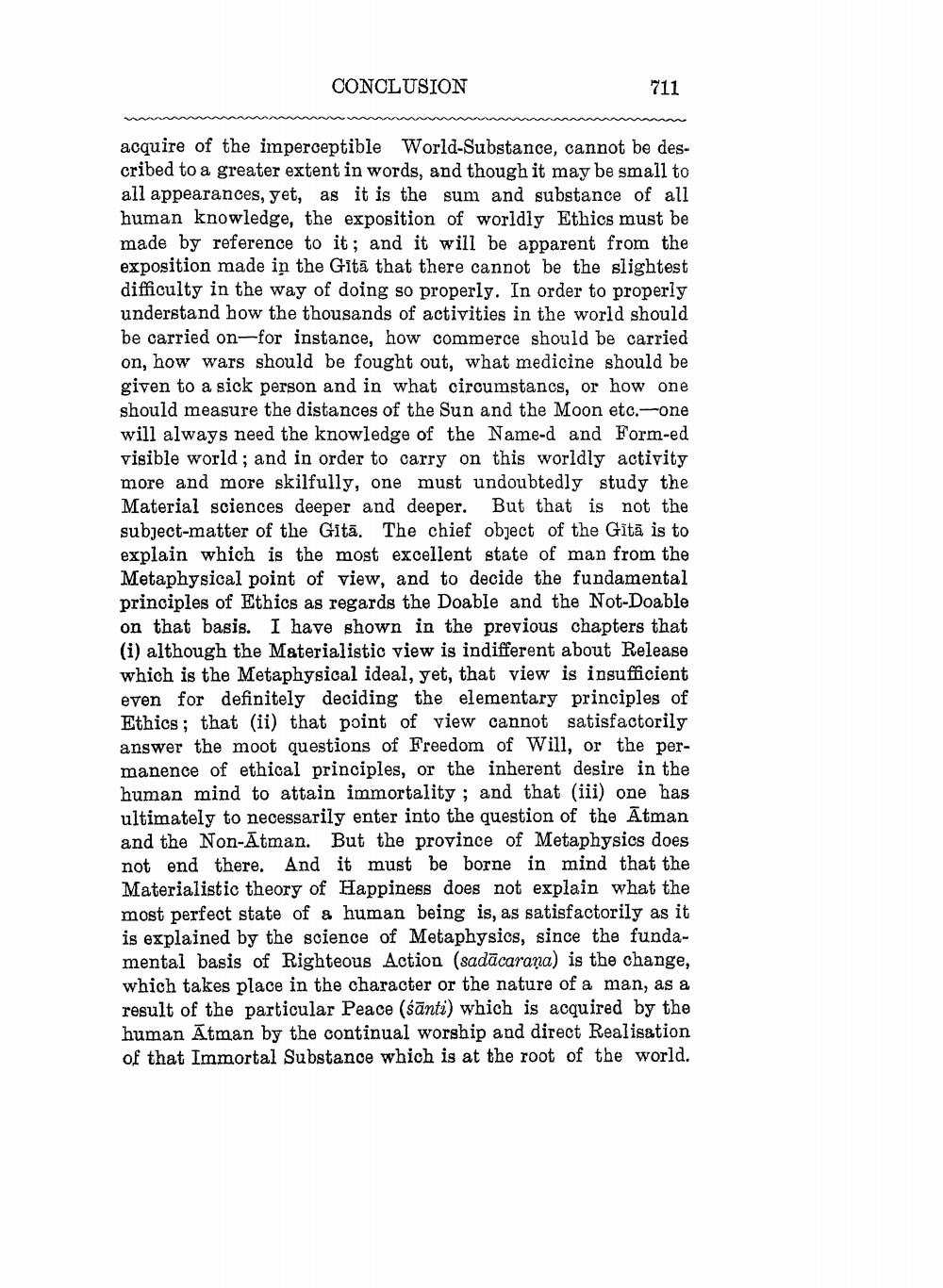________________
CONCLUSION
711
acquire of the imperceptible World-Substance, cannot be described to a greater extent in words, and though it may be small to all appearances, yet, as it is the sum and substance of all human knowledge, the exposition of worldly Ethics must be made by reference to it; and it will be apparent from the exposition made in the Gitā that there cannot be the slightest difficulty in the way of doing so properly. In order to properly understand how the thousands of activities in the world should be carried on-for instance, how commerce should be carried on, how wars should be fought out, what medicine should be given to a sick person and in what circumstancs, or how one should measure the distances of the Sun and the Moon etc.-one will always need the knowledge of the Name-d and Form-ed visible world, and in order to carry on this worldly activity more and more skilfully, one must undoubtedly study the Material sciences deeper and deeper. But that is not the subject-matter of the Gitā. The chief object of the Gītā is to explain which is the most excellent state of man from the Metaphysical point of view, and to decide the fundamental principles of Ethics as regards the Doable and the Not-Doable on that basis. I have shown in the previous chapters that (i) although the Materialistic view is indifferent about Release which is the Metaphysical ideal, yet, that view is insufficient even for definitely deciding the elementary principles of Ethics; that (ii) that point of view cannot satisfactorily answer the moot questions of Freedom of Will, or the permanence of ethical principles, or the inherent desire in the human mind to attain immortality; and that (iii) one has ultimately to necessarily enter into the question of the Atman and the Non-Atman. But the province of Metaphysics does not end there. And it must be borne in mind that the Materialistic theory of Happiness does not explain what the most perfect state of a human being is, as satisfactorily as it is explained by the science of Metaphysics, since the fundamental basis of Righteous Action (sadācarana) is the change, which takes place in the character or the nature of a man, as a result of the particular Peace (śānti) which is acquired by the human Ātman by the continual worship and direct Realisation of that Immortal Substance which is at the root of the world.




